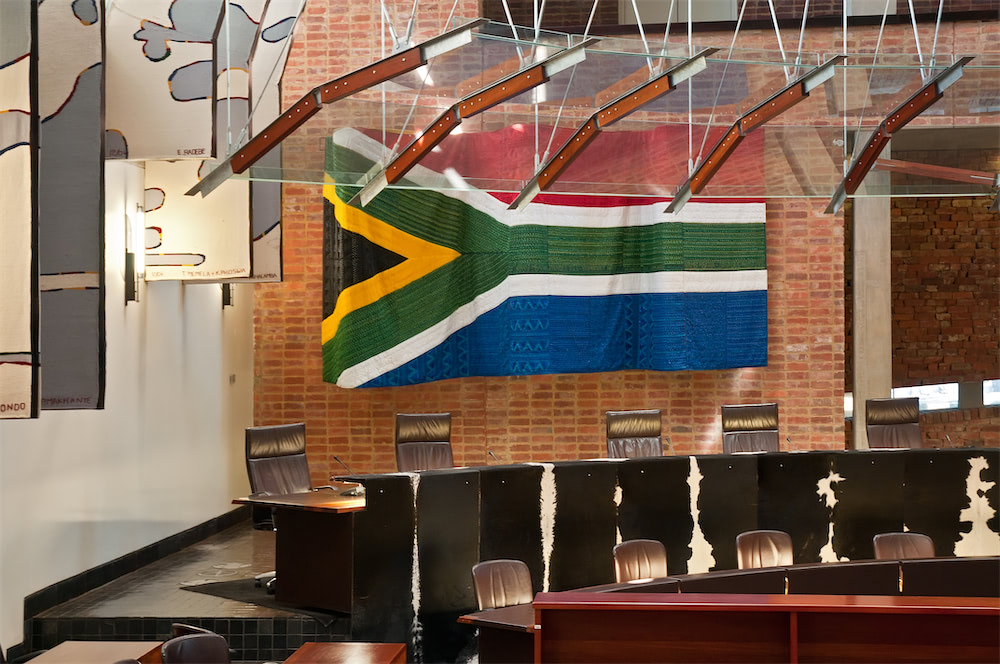

Bank Subpoenas & Judgment Enforcement: How Creditors Are Fighting Back
It seems like doing business today means that – at least at some point – you will be involved with people or a person who is unable to pay their debts. Delinquent payers who, while wanting to do business are just not able to meet their side of the deal.
A recent report by Eighty20 and XDS, released in early 2025, gives us a clear look at debt across the country – and it is worrying –
“The total amount South Africans owe on loans grew by 2.1% from the last quarter, reaching R2.56 trillion. But the number of overdue payments—money people couldn’t pay on time—went up by 4%, hitting R208 billion. This increase came mostly from unsecured loans (like personal loans not tied to an asset), where overdue payments rose by R3.2 billion, credit cards (up R2.3 billion), and smaller increases in home loans and vehicle loans (each up by about R1 billion).
More Loans Are Falling Behind
The number of loans that are overdue increased by 353,395, totalling 17.97 million. Now, 34.8% of all loans are in arrears (behind on payments), up slightly from 34.7% last quarter. This is the first time in two years we’ve seen this number go up instead of down. On the positive side, loans in good standing (where payments are on track) also increased by 473,667, a 1.4% rise.”
On average, South Africans spend 28% of their monthly income on loan payments.
And what this means for the people or the companies these people owe money to is this - they become creditors who are now forced to chase their erstwhile clients for money that is owed to them.
And that’s not fun for anyone involved.
How Can Creditors Fight Back?
Debt collection really is a conundrum for most creditors who feel like there is no clear winner.
For South African businesses, unpaid accounts represent more than just outstanding revenue and a less than favourable balance sheet. For most companies, unpaid accounts mean strained cash flow, hampered growth, and potentially damaged business relationships that there’s no coming back from.
But with the current overdue loans totalling 17.97 million and the debt-to-GDP ratio projected to hit 74.7%, many businesses face the challenge of needing to recover funds from the same valuable partnerships that they have built over a number of years. There is just no other choice. It’s a dog-eat-dog world out there.
Luckily, debt collection operates within several important regulatory frameworks
1. The National Credit Act 34 of 2005 (NCA) - provides consumer protection and regulates credit agreements, establishing clear procedures creditors must follow before initiating legal action. The NCA requires creditors to notify debtors of defaults and provide reasonable opportunities to resolve outstanding amounts.
2. The Debt Collectors Act 114 of 1998 - created the Council for Debt Collectors, which regulates and exercises control over the occupation of debt collectors in the industry and ensures that ethical standards are maintained at all times. It prohibits harassment, intimidation, and unfair practices during the collection process. It also amended the Magistrates’ Courts Act, 1944, in order to legalise the recovery of fees or remuneration by registered debt collectors.
3. The Magistrates’ Court Act 32 of 1944 - provides the legal framework for debt recovery through the court system, specifying procedures for litigation when necessary.
A summary of the debt collections process
1. Default Notice – prior to proceeding to court, a creditor would ordinarily first issue a formal notice of default to the debtors, setting out the amount owing and any payment terms.
2. Section 129 Notice – specifically for credit agreements, the NCA requires a formal Section 129 notice that offers different options for resolving the outstanding debt, including payment arrangements and debt counselling.
3. Legal Proceedings – should the debtor fail to make payment or settle the outstanding account; the creditors may proceed with summons. Should the debtor not defend the summons or come forward to pay, the creditor is able to apply for default judgment. Once the default judgement has been granted, the creditor can then proceed with warrants of execution against the debtors’ assets.
Warrants of Execution – Attach Bank Accounts
Section 68 of the Magistrate’s Court Act sets out that once default judgment is granted, a creditor may issue a warrant of execution against the debtor’s movable assets. This warrant is usually directed at all movable assets and executable at the debtor’s place of residence (why? well usually all the debtors’ movable assets will be at their place of residence).
But the sheriff's office is not always able to attach these movable assets – for one of three reasons –
a) The debtor doesn’t have sufficient movable assets to satisfy the debt;
b) The debtor blatantly lies and denies being the debtor – the sheriff is unable to attach movable assets of “someone else” – successfully evaded; or
c) The sheriff attaches movable assets that later are found to belong to a third party. In this case, the sheriff is forced to launch interpleader proceedings which means that the attachment may either be substantially delayed or even uplifted.
What happens then?
In this situation, as the creditor’s lawyer, you better start hoping that upon initially contracting with the debtor, the creditors’ FICA process was undertaken without a hitch. If it was a smooth intake process, you should have access to the debtors’ bank account details.
Money held in a bank account is an asset, and if the bank account belongs to the debtor- that means the money in that account is capable of attachment in satisfaction of a warrant.
That may be and often is a far better way to satisfy a warrant of execution than just attaching movable assets.
Declare Directors Delinquent
When is a director delinquent?
In terms of section 162 of the Companies Act, a company, a shareholder, a director, company secretary or prescribed officer of the company, a registered trade union that represents employees of the company, or any other representative of the employees of the company, may apply to court for an order declaring a person delinquent or under probation if:
a) the person is a director of that company, or within 24 months immediately preceding the application, was a director of that company; and amongst other things –
b) such director has:
(i) whilst under a probation order in terms of the Companies Act or the Close Corporations Act, acted in a manner that contravened that order;
(ii) grossly abused the position of a director;
(iii) intentionally, or by gross negligence, inflicted harm upon the company or a subsidiary of the company, contrary to the provisions of the Companies Act;
(iv) acted in any manner that amounts to gross negligence, wilful misconduct, or breach of trust in relation to the performance of such director’s duties.
Ordinary negligence or poor decision-making are insufficient for a delinquency order. Proof of gross negligence, wilful misconduct, or deceptive conduct are necessary. For conduct to qualify as gross negligence
The Companies Act also provides that a director who uses his or her position or any information obtained while acting in the capacity of a director to:
- gain an advantage for him- or herself or for another person other than the company or a wholly owned subsidiary of the company; or
- knowingly cause harm to the company or a subsidiary of the company;
must be declared delinquent.
Any organ of state responsible for the administration of legislation may also apply to court for an order declaring a director delinquent, if such director has repeatedly been personally subjected to a compliance notice or similar enforcement mechanism for substantially similar conduct in terms of any legislation.
A court will be obligated to declare a person to be a delinquent director if the person consented to serve as a director while ineligible or disqualified. Such disqualifications are set out in section 69 of the Companies Act and include that such person:
- was an unrehabilitated insolvent; or
- is prohibited in terms of any public regulation to be a director; or
- has been removed from an office of trust on the grounds of misconduct involving dishonesty; or
- has been convicted in the Republic or elsewhere for theft, fraud, forgery, or any conduct involving fraud, misrepresentation or dishonesty or offences involving various statutes such as the Insolvency Act, the Close Corporation Act, the Competition Act, the Financial Intelligence Centre Act (FICA), the Securities Services Act or the Prevention and Combating of Corrupt Activities Act.
Any person who has at least twice been personally convicted of an offence or subjected to an administrative fine or similar penalty in terms of any legislation could also be subject to an application for a declaration of delinquency.
Furthermore, any person may be placed under probation if he or she:
- acts in a manner materially inconsistent with the duties of a director; or
- acts in or supports a decision of a company to act in a manner which results in oppressive or prejudicial conduct; or
- on some basis acted in a manner which constituted an abuse of the separate juristic personality of such company.
Case law
In the recent matter of Vantage Mezzanine Fund II Partnership and Another v Hopeson and Others (2022/045978) [2023] ZAGPJHC 1406 (24 November 2023)
The outcome of this matter was that creditors of a company, acting in the public interest, can now approach the High Court to have directors of such a company declared delinquent. This is a crucial step in debt collection proceedings. Provided of course it can be proven that it is in fact in the public interest.
Facts of the case - Vantage provided Somnipoint (Pty) Ltd (Somnipoint) with a loan facility approximating R 200 million with which Somnipoint purchased a building known as ABSA Towers located in Pretoria.
In its capacity as creditor of Somnipoint, Vantage instituted an application to declare directors of Somnipoint delinquent in terms of section 162 of the Companies Act.
In terms of section 162(3), a shareholder, a director, company secretary or prescribed officer of a company, a registered trade union that represents employees of the company or another representative of the employees of a company may apply to a court for an order declaring a person delinquent or under probation. It is noteworthy that creditors of the company are not included as persons who may make such an application.
To overcome this obstacle, Vantage relied on section 157(1)(d) of the Companies Act. Section 157(1)(d) provides that a party, acting in the public interest, may make application to enforce any remedy that is prescribed in terms of the Companies Act.
Vantage argued that in light of the fact that the Unemployment Insurance Fund (UIF), a government entity, was a tenant of the ABSA Towers at the time when Somnipoint was the owner of the building, and the UIF being a recipient and dispenser of public funds, that accordingly, the public has an interest in the management of Somnipoint, a company that did business with an organ of state.
The court upheld Vantage’s averments and concluded that in the circumstances, it was appropriate for Vantage, in its capacity as a creditor of Somnipoint, to bring an application in terms of section 157(1)(d) of the Companies Act to declare directors of Somnipoint delinquent. The court acknowledged that this is a “novel remedy” and one which should be available to creditors.
This has been a welcome ruling as creditors are crucial stakeholders of any given company and where creditors are enabled to enforce their rights and interests in the company, they must do so. This case enables them another way to do just that.
Other examples in our case law which set out the type of conduct sufficient for a delinquency order are -
· Reckless trading and a failure to timeously communicate to the board - Kukama vs Lobelo, Peolwane Properties (Proprietary) Limited, Diphuka Construction (Proprietary) Limited and CIPC, South Gauteng High Court, Johannesburg, 12 April 2012.
· Allowing the company to continue trading while insolvent - Companies and Intellectual Property Commission v Cresswell and Others [2017] ZAWCHC 38
· Misrepresentation of financial statements, and/ or failing to prepare them correctly/ timeously - Afric Oil (Pty) Ltd v Nkadimeng and another [2020] JOL 47232 (GJ)
· A director lying on their CV - Breadline Africa RSA (NPC) and another v Bhana [2022] JOL 55168 (GJ)
· The siphoning of company monies for a directors personal use - Mkhatshwa v Ndlovu and others [2022] JOL 57529 (GP).
What’s clear from the above is that creditors have a number of ways they are able to fight back against unpaid accounts – from the civil side, by sending out default notices and trying to come to some payment arrangements all the way to attaching bank accounts and even declaring directors of companies delinquent and holding them personally liable.
We have taken the utmost care to ensure that the above information is correct having taken information directly from the National Credit Act as well as the Companies Act, but we urge you to consult with a suitably qualified legal practitioner who will be able to answer any questions you may have on the best way to recover outstanding debt and what steps you should be taking. In this regard, we would be more than happy to support you. Please feel free to contact us to see how we can best assist.
We are a law firm that considers honesty to be core to our business. We are a law firm that will provide you with clear advice and smart strategies - always keeping your best interests at heart!
(Sources used and to whom we give thanks – dcasa; Oak Law; Vermeulen Attorneys; Werksmans here and here).




